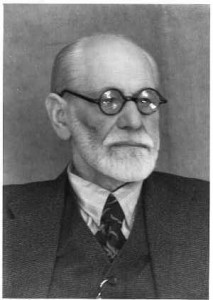This morning the Los Angeles Times published my op-ed rejecting the American Studies Association’s resolution to boycott Israeli Universities. I am sharing it here.
Boycott of Israeli universities: A repugnant attack on academic freedom
Academic institutions should not be declared off-limits because of their national affiliation.
The American Studies Assn. recently passed a resolution that “endorses and … honor[s] the call of Palestinian civil society for a boycott of Israeli academic institutions.” The action was taken, the group explained, because “there is no effective or substantive academic freedom for Palestinian students and scholars under conditions of Israeli occupation,” and because “Israeli institutions of higher learning are a party to Israeli state policies that violate human rights and negatively impact the working conditions of Palestinian scholars and students.”
But the boycott is a repugnant attack on academic freedom, declaring academic institutions off-limits because of their national affiliation.
The ASA has not gone on record against the universities in any other country in the world: not against those that enforce laws against homosexuality, not against those that have rejected freedom of speech, not against those that systematically restrict access to higher education by race, religion or gender. No, the ASA listens to civil society only when it speaks against Israel. As its scholarly president declared, “One has to start somewhere.” Not in North Korea, not in Russia or Zimbabwe or China — one has to start with Israel. Really?
The 820-plus ASA members who voted for the resolution are sanctioning universities and their faculties because of their government’s policies. Many Israeli professors, like many other citizens, oppose the policies of the current government. But these schools have now run afoul of the ASA and are subject to boycott.
The ASA makes clear it thinks the United States enables the Israeli policies that it finds most objectionable. Did its leadership consider boycotting American universities too?
Not all those in academia agree with the ASA’s action, of course. Here’s what the American Assn. of University Professors, for example, has to say about the importance of unfettered interaction among scholars:
“Since its founding in 1915, the AAUP has been committed to preserving and advancing the free exchange of ideas among academics irrespective of governmental policies and however unpalatable those policies may be viewed. We reject proposals that curtail the freedom of teachers and researchers to engage in work with academic colleagues, and we reaffirm the paramount importance of the freest possible international movement of scholars and ideas.”
There is plenty of debate among Israeli scholars about the policies of their government, and there is plenty of debate among Israeli, Palestinian and other scholars about a reasonable path forward in the Middle East. As a citizen of the United States, I have supported efforts to develop new approaches to achieving peace in the Middle East. As a Jew, I have argued against the policies of the current Israeli government, many of which I find abhorrent.
Boycotts don’t serve these debates; they seek to cut them off by declaring certain academic institutions and their faculty off-limits. This tactic, in the words of Richard Slotkin, an emeritus professor here at Wesleyan University, “is wrong in principle, politically impotent, intellectually dishonest and morally obtuse.”
As president of Wesleyan, and as a historian, I deplore this politically retrograde resolution of the American Studies Assn. Under the guise of phony progressivism, the group has initiated an irresponsible attack on academic freedom. Others in academia should reject this call for an academic boycott.



